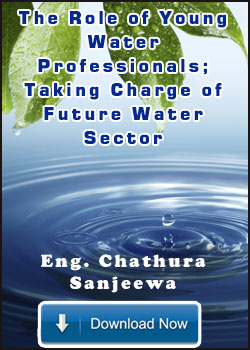 |
|
Background
Year 2016 was one of the warmest years for the globe; people faced severe and unexpected disasters and consequences from an environmental context. These disasters are key climate indicators of the decades-long trend of climate change which threatens lives, properties, productive assets and also cause impacts on social indicators. Not only the frequency, but also the magnitude of these natural disasters are getting higher. The circumstance in Sri Lanka is also the same. According to the Disaster Management Center; more than 340,000 Sri Lankans were affected from floods and landslides within last year.
|
|
Although the society discusses these numerous concerns from time to time and tend to find solutions; in the long run, people find solutions only once the problems arise. In a journey to achieve a sustainable world, society should come up with better solutions which are pro-active and reinforced from previous experiences. For instance, now-a-days people talk about droughts; but they have forgotten about the recent floods where both young and old, experienced the harsh reality of scarcity of drinking water. So the highlight is; water is the life and blood for both flora and fauna which have a direct influence on the economy and the development of a country. Unlike oil, there is no substitute to fresh water. Water is the finite resource that enables life and fuels all human activities.
According to the National Water Supply & Drainage Board (NWSDB), access to Safe Water Coverage in Sri Lanka at present is more than 86 %. However, the uneven spatial distribution of available safe water has developed a water scarcity in some parts of the country. With the increasing demand for fresh water and the developing complexity of human requirements, the fresh water scarcity is increasing. Also to achieve Sustainable Development Goals, initiated through United Nations, looking after clean water and sanitation are vitally important. Therefore, as Young Water Professionals in Sri Lanka, it is timely for us to “Take charge of the future water sector: What can we do and what do we want to do?”
By Eng. Chathura Sanjeewa
Civil Engineer Badulla, Haliela and Ella Integrated Water Supply Project
National Water Supply & Drainage Board.
|